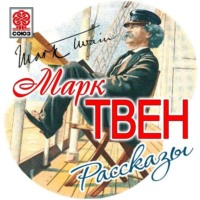 полная версия
полная версияFollowing the Equator: A Journey Around the World
Many memories of my former visit to the islands came up in my mind while we lay at anchor in front of Honolulu that night. And pictures – pictures pictures – an enchanting procession of them! I was impatient for the morning to come.
When it came it brought disappointment, of course. Cholera had broken out in the town, and we were not allowed to have any communication with the shore. Thus suddenly did my dream of twenty-nine years go to ruin. Messages came from friends, but the friends themselves I was not to have any sight of. My lecture-hall was ready, but I was not to see that, either.
Several of our passengers belonged in Honolulu, and these were sent ashore; but nobody could go ashore and return. There were people on shore who were booked to go with us to Australia, but we could not receive them; to do it would cost us a quarantine-term in Sydney. They could have escaped the day before, by ship to San Francisco; but the bars had been put up, now, and they might have to wait weeks before any ship could venture to give them a passage any whither. And there were hardships for others. An elderly lady and her son, recreation-seekers from Massachusetts, had wandered westward, further and further from home, always intending to take the return track, but always concluding to go still a little further; and now here they were at anchor before Honolulu positively their last westward-bound indulgence – they had made up their minds to that – but where is the use in making up your mind in this world? It is usually a waste of time to do it. These two would have to stay with us as far as Australia. Then they could go on around the world, or go back the way they had come; the distance and the accommodations and outlay of time would be just the same, whichever of the two routes they might elect to take. Think of it: a projected excursion of five hundred miles gradually enlarged, without any elaborate degree of intention, to a possible twenty-four thousand. However, they were used to extensions by this time, and did not mind this new one much.
And we had with us a lawyer from Victoria, who had been sent out by the Government on an international matter, and he had brought his wife with him and left the children at home with the servants and now what was to be done? Go ashore amongst the cholera and take the risks? Most certainly not. They decided to go on, to the Fiji islands, wait there a fortnight for the next ship, and then sail for home. They couldn’t foresee that they wouldn’t see a homeward-bound ship again for six weeks, and that no word could come to them from the children, and no word go from them to the children in all that time. It is easy to make plans in this world; even a cat can do it; and when one is out in those remote oceans it is noticeable that a cat’s plans and a man’s are worth about the same. There is much the same shrinkage in both, in the matter of values.
There was nothing for us to do but sit about the decks in the shade of the awnings and look at the distant shore. We lay in luminous blue water; shoreward the water was green-green and brilliant; at the shore itself it broke in a long white ruffle, and with no crash, no sound that we could hear. The town was buried under a mat of foliage that looked like a cushion of moss. The silky mountains were clothed in soft, rich splendors of melting color, and some of the cliffs were veiled in slanting mists. I recognized it all. It was just as I had seen it long before, with nothing of its beauty lost, nothing of its charm wanting.
A change had come, but that was political, and not visible from the ship. The monarchy of my day was gone, and a republic was sitting in its seat. It was not a material change. The old imitation pomps, the fuss and feathers, have departed, and the royal trademark – that is about all that one could miss, I suppose. That imitation monarchy, was grotesque enough, in my time; if it had held on another thirty years it would have been a monarchy without subjects of the king’s race.
We had a sunset of a very fine sort. The vast plain of the sea was marked off in bands of sharply-contrasted colors: great stretches of dark blue, others of purple, others of polished bronze; the billowy mountains showed all sorts of dainty browns and greens, blues and purples and blacks, and the rounded velvety backs of certain of them made one want to stroke them, as one would the sleek back of a cat. The long, sloping promontory projecting into the sea at the west turned dim and leaden and spectral, then became suffused with pink – dissolved itself in a pink dream, so to speak, it seemed so airy and unreal. Presently the cloud-rack was flooded with fiery splendors, and these were copied on the surface of the sea, and it made one drunk with delight to look upon it.
From talks with certain of our passengers whose home was Honolulu, and from a sketch by Mrs. Mary H. Krout, I was able to perceive what the Honolulu of to-day is, as compared with the Honolulu of my time. In my time it was a beautiful little town, made up of snow-white wooden cottages deliciously smothered in tropical vines and flowers and trees and shrubs; and its coral roads and streets were hard and smooth, and as white as the houses. The outside aspects of the place suggested the presence of a modest and comfortable prosperity – a general prosperity – perhaps one might strengthen the term and say universal. There were no fine houses, no fine furniture. There were no decorations. Tallow candles furnished the light for the bedrooms, a whale-oil lamp furnished it for the parlor. Native matting served as carpeting. In the parlor one would find two or three lithographs on the walls – portraits as a rule: Kamehameha IV., Louis Kossuth, Jenny Lind; and may be an engraving or two: Rebecca at the Well, Moses smiting the rock, Joseph’s servants finding the cup in Benjamin’s sack. There would be a center table, with books of a tranquil sort on it: The Whole Duty of Man, Baxter’s Saints’ Rest, Fox’s Martyrs, Tupper’s Proverbial Philosophy, bound copies of The Missionary Herald and of Father Damon’s Seaman’s Friend. A melodeon; a music stand, with ‘Willie, We have Missed You’, ‘Star of the Evening’, ‘Roll on Silver Moon’, ‘Are We Most There’, ‘I Would not Live Alway’, and other songs of love and sentiment, together with an assortment of hymns. A what-not with semi-globular glass paperweights, enclosing miniature pictures of ships, New England rural snowstorms, and the like; sea-shells with Bible texts carved on them in cameo style; native curios; whale’s tooth with full-rigged ship carved on it. There was nothing reminiscent of foreign parts, for nobody had been abroad. Trips were made to San Francisco, but that could not be called going abroad. Comprehensively speaking, nobody traveled.
But Honolulu has grown wealthy since then, and of course wealth has introduced changes; some of the old simplicities have disappeared. Here is a modern house, as pictured by Mrs. Krout:
“Almost every house is surrounded by extensive lawns and gardens enclosed by walls of volcanic stone or by thick hedges of the brilliant hibiscus.
“The houses are most tastefully and comfortably furnished; the floors are either of hard wood covered with rugs or with fine Indian matting, while there is a preference, as in most warm countries, for rattan or bamboo furniture; there are the usual accessories of bric-a-brac, pictures, books, and curios from all parts of the world, for these island dwellers are indefatigable travelers.
“Nearly every house has what is called a lanai. It is a large apartment, roofed, floored, open on three sides, with a door or a draped archway opening into the drawing-room. Frequently the roof is formed by the thick interlacing boughs of the hou tree, impervious to the sun and even to the rain, except in violent storms. Vines are trained about the sides – the stephanotis or some one of the countless fragrant and blossoming trailers which abound in the islands. There are also curtains of matting that may be drawn to exclude the sun or rain. The floor is bare for coolness, or partially covered with rugs, and the lanai is prettily furnished with comfortable chairs, sofas, and tables loaded with flowers, or wonderful ferns in pots.
“The lanai is the favorite reception room, and here at any social function the musical program is given and cakes and ices are served; here morning callers are received, or gay riding parties, the ladies in pretty divided skirts, worn for convenience in riding astride, – the universal mode adopted by Europeans and Americans, as well as by the natives.
“The comfort and luxury of such an apartment, especially at a seashore villa, can hardly be imagined. The soft breezes sweep across it, heavy with the fragrance of jasmine and gardenia, and through the swaying boughs of palm and mimosa there are glimpses of rugged mountains, their summits veiled in clouds, of purple sea with the white surf beating eternally against the reefs, whiter still in the yellow sunlight or the magical moonlight of the tropics.”
There: rugs, ices, pictures, lanais, worldly books, sinful bric-a-brac fetched from everywhere. And the ladies riding astride. These are changes, indeed. In my time the native women rode astride, but the white ones lacked the courage to adopt their wise custom. In my time ice was seldom seen in Honolulu. It sometimes came in sailing vessels from New England as ballast; and then, if there happened to be a man-of-war in port and balls and suppers raging by consequence, the ballast was worth six hundred dollars a ton, as is evidenced by reputable tradition. But the ice-machine has traveled all over the world, now, and brought ice within everybody’s reach. In Lapland and Spitzbergen no one uses native ice in our day, except the bears and the walruses.
The bicycle is not mentioned. It was not necessary. We know that it is there, without inquiring. It is everywhere. But for it, people could never have had summer homes on the summit of Mont Blanc; before its day, property up there had but a nominal value. The ladies of the Hawaiian capital learned too late the right way to occupy a horse – too late to get much benefit from it. The riding-horse is retiring from business everywhere in the world. In Honolulu a few years from now he will be only a tradition.
We all know about Father Damien, the French priest who voluntarily forsook the world and went to the leper island of Molokai to labor among its population of sorrowful exiles who wait there, in slow-consuming misery, for death to come and release them from their troubles; and we know that the thing which he knew beforehand would happen, did happen: that he became a leper himself, and died of that horrible disease. There was still another case of self-sacrifice, it appears. I asked after “Billy” Ragsdale, interpreter to the Parliament in my time – a half-white. He was a brilliant young fellow, and very popular. As an interpreter he would have been hard to match anywhere. He used to stand up in the Parliament and turn the English speeches into Hawaiian and the Hawaiian speeches into English with a readiness and a volubility that were astonishing. I asked after him, and was told that his prosperous career was cut short in a sudden and unexpected way, just as he was about to marry a beautiful half-caste girl. He discovered, by some nearly invisible sign about his skin, that the poison of leprosy was in him. The secret was his own, and might be kept concealed for years; but he would not be treacherous to the girl that loved him; he would not marry her to a doom like his. And so he put his affairs in order, and went around to all his friends and bade them good-bye, and sailed in the leper ship to Molokai. There he died the loathsome and lingering death that all lepers die.
In this place let me insert a paragraph or two from “The Paradise of the Pacific” (Rev. H. H. Gowen) —
“Poor lepers! It is easy for those who have no relatives or friends among them to enforce the decree of segregation to the letter, but who can write of the terrible, the heart-breaking scenes which that enforcement has brought about?
“A man upon Hawaii was suddenly taken away after a summary arrest, leaving behind him a helpless wife about to give birth to a babe. The devoted wife with great pain and risk came the whole journey to Honolulu, and pleaded until the authorities were unable to resist her entreaty that she might go and live like a leper with her leper husband.
“A woman in the prime of life and activity is condemned as an incipient leper, suddenly removed from her home, and her husband returns to find his two helpless babes moaning for their lost mother.
“Imagine it! The case of the babies is hard, but its bitterness is a trifle – less than a trifle – less than nothing – compared to what the mother must suffer; and suffer minute by minute, hour by hour, day by day, month by month, year by year, without respite, relief, or any abatement of her pain till she dies.
“One woman, Luka Kaaukau, has been living with her leper husband in the settlement for twelve years. The man has scarcely a joint left, his limbs are only distorted ulcerated stumps, for four years his wife has put every particle of food into his mouth. He wanted his wife to abandon his wretched carcass long ago, as she herself was sound and well, but Luka said that she was content to remain and wait on the man she loved till the spirit should be freed from its burden.
“I myself have known hard cases enough: – of a girl, apparently in full health, decorating the church with me at Easter, who before Christmas is taken away as a confirmed leper; of a mother hiding her child in the mountains for years so that not even her dearest friends knew that she had a child alive, that he might not be taken away; of a respectable white man taken away from his wife and family, and compelled to become a dweller in the Leper Settlement, where he is counted dead, even by the insurance companies.”
And one great pity of it all is, that these poor sufferers are innocent. The leprosy does not come of sins which they committed, but of sins committed by their ancestors, who escaped the curse of leprosy!
Mr. Gowan has made record of a certain very striking circumstance. Would you expect to find in that awful Leper Settlement a custom worthy to be transplanted to your own country? They have one such, and it is inexpressibly touching and beautiful. When death sets open the prison-door of life there, the band salutes the freed soul with a burst of glad music!
CHAPTER IV
A dozen direct censures are easier to bear than one morganatic compliment.
– Pudd’nhead Wilson’s New Calendar.
Sailed from Honolulu. – From diary:
Sept. 2. Flocks of flying fish-slim, shapely, graceful, and intensely white. With the sun on them they look like a flight of silver fruit-knives. They are able to fly a hundred yards.
Sept. 3. In 9 deg. 50’ north latitude, at breakfast. Approaching the equator on a long slant. Those of us who have never seen the equator are a good deal excited. I think I would rather see it than any other thing in the world. We entered the “doldrums” last night – variable winds, bursts of rain, intervals of calm, with chopping seas and a wobbly and drunken motion to the ship – a condition of things findable in other regions sometimes, but present in the doldrums always. The globe-girdling belt called the doldrums is 20 degrees wide, and the thread called the equator lies along the middle of it.
Sept. 4. Total eclipse of the moon last night. At 7.30 it began to go off. At total – or about that – it was like a rich rosy cloud with a tumbled surface framed in the circle and projecting from it – a bulge of strawberry-ice, so to speak. At half-eclipse the moon was like a gilded acorn in its cup.
Sept. 5. Closing in on the equator this noon. A sailor explained to a young girl that the ship’s speed is poor because we are climbing up the bulge toward the center of the globe; but that when we should once get over, at the equator, and start down-hill, we should fly. When she asked him the other day what the fore-yard was, he said it was the front yard, the open area in the front end of the ship. That man has a good deal of learning stored up, and the girl is likely to get it all.
Afternoon. Crossed the equator. In the distance it looked like a blue ribbon stretched across the ocean. Several passengers kodak’d it. We had no fool ceremonies, no fantastics, no horse play. All that sort of thing has gone out. In old times a sailor, dressed as Neptune, used to come in over the bows, with his suite, and lather up and shave everybody who was crossing the equator for the first time, and then cleanse these unfortunates by swinging them from the yard-arm and ducking them three times in the sea. This was considered funny. Nobody knows why. No, that is not true. We do know why. Such a thing could never be funny on land; no part of the old-time grotesque performances gotten up on shipboard to celebrate the passage of the line could ever be funny on shore – they would seem dreary and witless to shore people. But the shore people would change their minds about it at sea, on a long voyage. On such a voyage, with its eternal monotonies, people’s intellects deteriorate; the owners of the intellects soon reach a point where they almost seem to prefer childish things to things of a maturer degree. One is often surprised at the juvenilities which grown people indulge in at sea, and the interest they take in them, and the consuming enjoyment they get out of them. This is on long voyages only. The mind gradually becomes inert, dull, blunted; it loses its accustomed interest in intellectual things; nothing but horse-play can rouse it, nothing but wild and foolish grotesqueries can entertain it. On short voyages it makes no such exposure of itself; it hasn’t time to slump down to this sorrowful level.
The short-voyage passenger gets his chief physical exercise out of “horse-billiards” – shovel-board. It is a good game. We play it in this ship. A quartermaster chalks off a diagram like this-on the deck.
The player uses a cue that is like a broom-handle with a quarter-moon of wood fastened to the end of it. With this he shoves wooden disks the size of a saucer – he gives the disk a vigorous shove and sends it fifteen or twenty feet along the deck and lands it in one of the squares if he can. If it stays there till the inning is played out, it will count as many points in the game as the figure in the square it has stopped in represents. The adversary plays to knock that disk out and leave his own in its place – particularly if it rests upon the 9 or 10 or some other of the high numbers; but if it rests in the “10off” he backs it up – lands his disk behind it a foot or two, to make it difficult for its owner to knock it out of that damaging place and improve his record. When the inning is played out it may be found that each adversary has placed his four disks where they count; it may be found that some of them are touching chalk lines and not counting; and very often it will be found that there has been a general wreckage, and that not a disk has been left within the diagram. Anyway, the result is recorded, whatever it is, and the game goes on. The game is 100 points, and it takes from twenty minutes to forty to play it, according to luck and the condition of the sea. It is an exciting game, and the crowd of spectators furnish abundance of applause for fortunate shots and plenty of laughter for the other kind. It is a game of skill, but at the same time the uneasy motion of the ship is constantly interfering with skill; this makes it a chancy game, and the element of luck comes largely in.
We had a couple of grand tournaments, to determine who should be “Champion of the Pacific”; they included among the participants nearly all the passengers, of both sexes, and the officers of the ship, and they afforded many days of stupendous interest and excitement, and murderous exercise – for horse-billiards is a physically violent game.
The figures in the following record of some of the closing games in the first tournament will show, better than any description, how very chancy the game is. The losers here represented had all been winners in the previous games of the series, some of them by fine majorities:

And so on; until but three couples of winners were left. Then I beat my man, young Smith beat his man, and Thomas beat his. This reduced the combatants to three. Smith and I took the deck, and I led off. At the close of the first inning I was 10 worse than nothing and Smith had scored 7. The luck continued against me. When I was 57, Smith was 97 – within 3 of out. The luck changed then. He picked up a 10-off or so, and couldn’t recover. I beat him.
The next game would end tournament No. 1.
Mr. Thomas and I were the contestants. He won the lead and went to the bat – so to speak. And there he stood, with the crotch of his cue resting against his disk while the ship rose slowly up, sank slowly down, rose again, sank again. She never seemed to rise to suit him exactly. She started up once more; and when she was nearly ready for the turn, he let drive and landed his disk just within the left-hand end of the 10. (Applause). The umpire proclaimed “a good 10,” and the game-keeper set it down. I played: my disk grazed the edge of Mr. Thomas’s disk, and went out of the diagram. (No applause.)
Mr. Thomas played again – and landed his second disk alongside of the first, and almost touching its right-hand side. “Good 10.” (Great applause.)
I played, and missed both of them. (No applause.)
Mr. Thomas delivered his third shot and landed his disk just at the right of the other two. “ Good 10.” (Immense applause.)
There they lay, side by side, the three in a row. It did not seem possible that anybody could miss them. Still I did it. (Immense silence.)
Mr. Thomas played his last disk. It seems incredible, but he actually landed that disk alongside of the others, and just to the right of them-a straight solid row of 4 disks. (Tumultuous and long-continued applause.)
Then I played my last disk. Again it did not seem possible that anybody could miss that row – a row which would have been 14 inches long if the disks had been clamped together; whereas, with the spaces separating them they made a longer row than that. But I did it. It may be that I was getting nervous.
I think it unlikely that that innings has ever had its parallel in the history of horse-billiards. To place the four disks side by side in the 10 was an extraordinary feat; indeed, it was a kind of miracle. To miss them was another miracle. It will take a century to produce another man who can place the four disks in the 10; and longer than that to find a man who can’t knock them out. I was ashamed of my performance at the time, but now that I reflect upon it I see that it was rather fine and difficult.
Mr. Thomas kept his luck, and won the game, and later the championship.
In a minor tournament I won the prize, which was a Waterbury watch. I put it in my trunk. In Pretoria, South Africa, nine months afterward, my proper watch broke down and I took the Waterbury out, wound it, set it by the great clock on the Parliament House (8.05), then went back to my room and went to bed, tired from a long railway journey. The parliamentary clock had a peculiarity which I was not aware of at the time – a peculiarity which exists in no other clock, and would not exist in that one if it had been made by a sane person; on the half-hour it strikes the succeeding hour, then strikes the hour again, at the proper time. I lay reading and smoking awhile; then, when I could hold my eyes open no longer and was about to put out the light, the great clock began to boom, and I counted ten. I reached for the Waterbury to see how it was getting along. It was marking 9.30. It seemed rather poor speed for a three-dollar watch, but I supposed that the climate was affecting it. I shoved it half an hour ahead; and took to my book and waited to see what would happen. At 10 the great clock struck ten again. I looked – the Waterbury was marking half-past 10. This was too much speed for the money, and it troubled me. I pushed the hands back a half hour, and waited once more; I had to, for I was vexed and restless now, and my sleepiness was gone. By and by the great clock struck 11. The Waterbury was marking 10.30. I pushed it ahead half an hour, with some show of temper. By and by the great clock struck 11 again. The Waterbury showed up 11.30, now, and I beat her brains out against the bedstead. I was sorry next day, when I found out.








